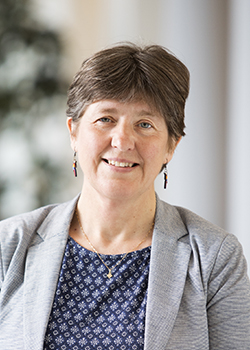The report shows that more species than ever in human history are threatened with extinction and that biodiversity locally has changed significantly in a large part of the world's ecosystem. The loss of biodiversity means that we lose many of the benefits that nature gives us people, often called ecosystem services, such as food, clean water, fibers for clothing, building materials, recreation and inspiration. IPBES's message is that the development goes in the wrong direction and that fundamental changes are needed both in society and for individuals, in order to slow down the negative trend.
 - In order to stop the negative trend, measures are needed on a broad front, says Marie Stenseke. There is a need for other knowledge than just the natural sciences, for example for the development of technical and social innovation and investment systems, a strengthened compliance with environmental legislation and environmental economic measures. Even as individuals, we have a responsibility, for example, to reduce over-consumption, and to start a discussion about what quality of life and a good society are.
- In order to stop the negative trend, measures are needed on a broad front, says Marie Stenseke. There is a need for other knowledge than just the natural sciences, for example for the development of technical and social innovation and investment systems, a strengthened compliance with environmental legislation and environmental economic measures. Even as individuals, we have a responsibility, for example, to reduce over-consumption, and to start a discussion about what quality of life and a good society are.
The report is based on 15,000 research articles from a variety of areas and has a broad, interdisciplinary approach. In addition to traditional academic knowledge, other knowledge systems, including from indigenous peoples, and various ways of looking at the world have also been included.
Marie Stenseke is professor of human geography, Deputy Dean of the School of Business, Economics and Law at the University of Gothenburg and one of two chairmen of the IPBES Multidisciplinary Expert Panel, who appointed the authors and followed the completion of the report.
More about the report
Media Release from IPBES (including a summary for policy makers)
 - In order to stop the negative trend, measures are needed on a broad front, says Marie Stenseke. There is a need for other knowledge than just the natural sciences, for example for the development of technical and social innovation and investment systems, a strengthened compliance with environmental legislation and environmental economic measures. Even as individuals, we have a responsibility, for example, to reduce over-consumption, and to start a discussion about what quality of life and a good society are.
- In order to stop the negative trend, measures are needed on a broad front, says Marie Stenseke. There is a need for other knowledge than just the natural sciences, for example for the development of technical and social innovation and investment systems, a strengthened compliance with environmental legislation and environmental economic measures. Even as individuals, we have a responsibility, for example, to reduce over-consumption, and to start a discussion about what quality of life and a good society are.